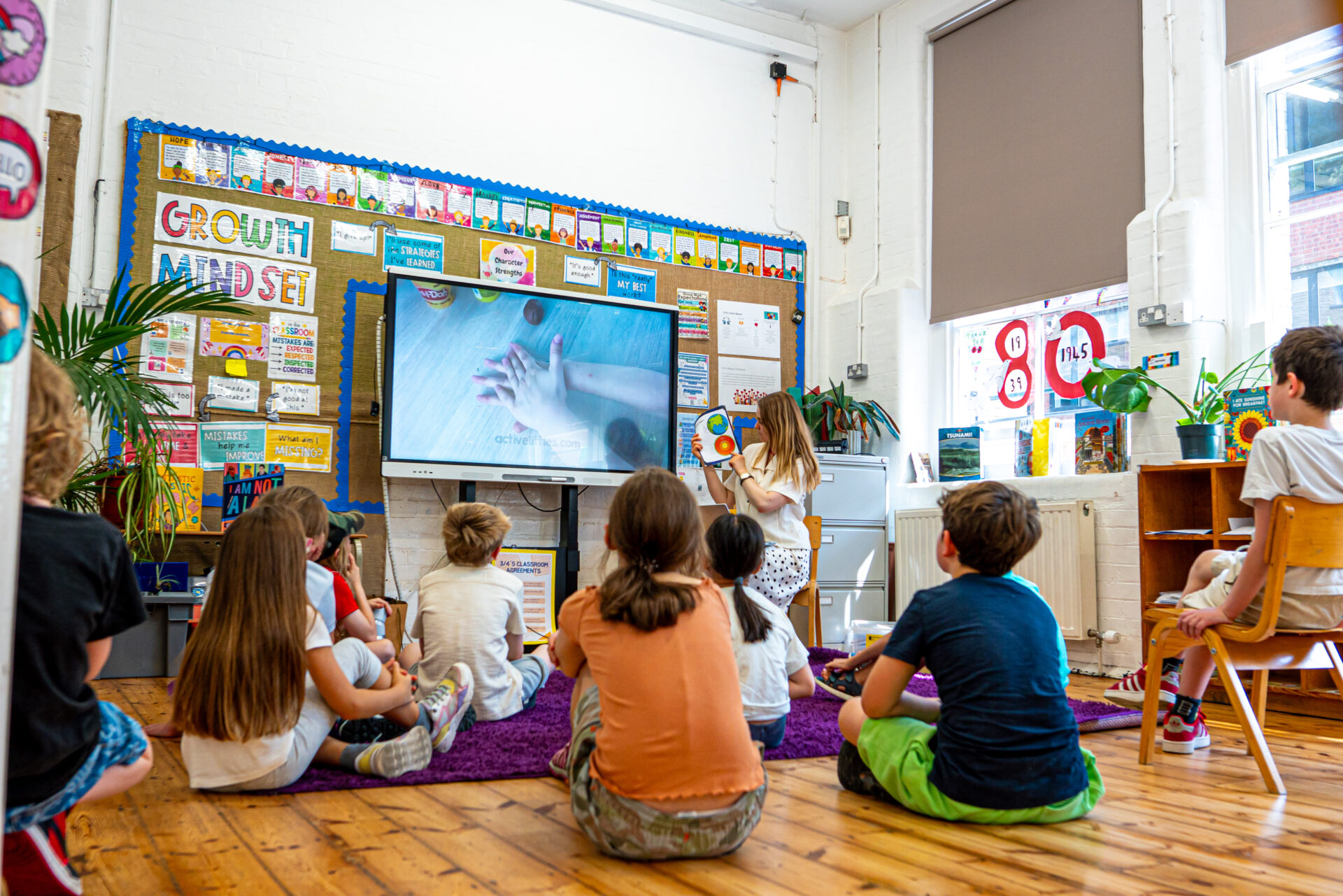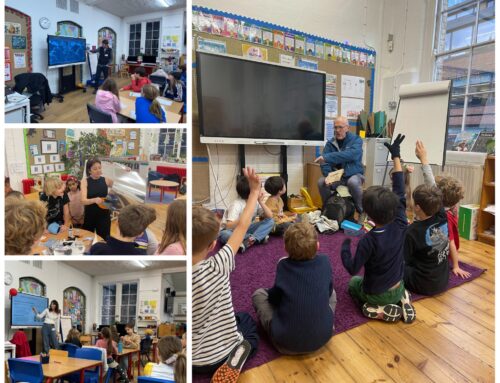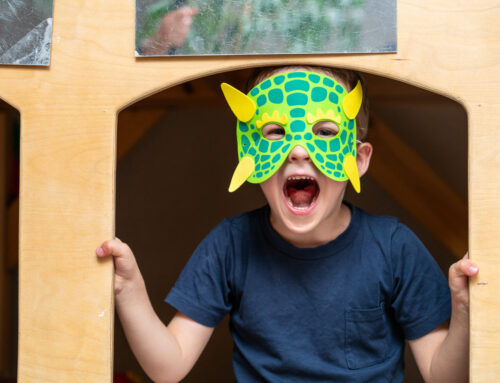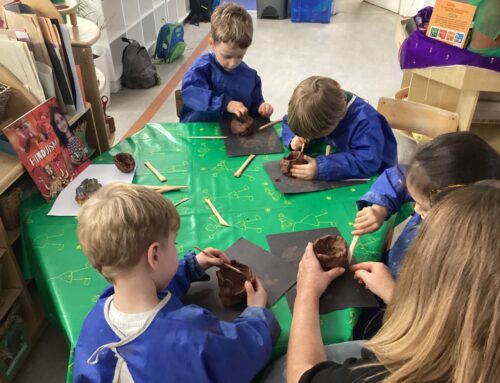At Dallington, we have always believed that there is no such thing as a “typical” child. Every pupil brings a unique blend of strengths, interests and ways of processing the world. We believe that no two children think, feel, or learn in the same way – and that’s exactly how it should be. That idea, now widely recognised under the umbrella term neurodiversity, has guided our progressive approach since 1978.
What Does It Mean to Be Neurodiverse?
Neurodiversity refers to the natural variation in how human brains function. It includes conditions like autism, ADHD, dyslexia, dyspraxia, and others, but it’s not about deficits or disorders. It’s about difference. Some children may struggle with traditional school models that emphasise conformity, rigid expectations, and performance under pressure. For neurodivergent learners, these environments can be stifling at best and traumatic at worst.
But when educational spaces value creativity, flexibility, and emotional safety, neurodiverse children not only cope, they flourish.
Why Neurodiversity Matters in Primary Education
More than one in five UK pupils is currently identified with a special educational need or disability (SEND), and the fastest-growing group are children whose profiles sit under the neurodiversity spectrum of autism, ADHD, dyslexia, dyspraxia, dyscalculia and more. DfE data show the total number of pupils with SEND rose 5.6 % between January 2024 and January 2025, continuing an upward trend since 2016, driven by better awareness and assessment tools.
Yet diagnosis alone does not guarantee a child’ educational wellbeing. Traditional, test-driven classrooms still lean heavily on one-size-fits-all instruction, silent seatwork and narrow definitions of success. For many neurodivergent learners that environment can mean sensory overload, reduced self-esteem and untapped potential.
Progressive education flips that script by designing the school experience around how children learn, not just what they learn. That philosophy aligns closely with what today’s North London families tell us they want: child-centred learning, emotional development and meaningful creativity ahead of rote performance.
The Traditional Model Isn’t Built for Every Brain
Mainstream education often relies heavily on standardisation: standard tests, standard pace and standard teaching methods. This approach can leave behind students whose ways of learning don’t fit neatly into the system. And with the number of SEND (Special Educational Needs and Disabilities) diagnoses rising every year in the UK, this isn’t a just niche concern, it’s a mainstream one.
The rigid systems of traditional schooling can be especially tough on children with sensory sensitivities, attention differences, or social communication needs. These children aren’t underachieving, they’re underserved.
Why Progressive Education Works for Neurodivergent Learners
At Dallington, we’ve never believed in forcing children to fit the system. We design the system to fit the child. Progressive education, which we’ve always championed, is about more than just a relaxed curriculum or fewer tests. It’s a philosophy built around the child. It respects each learner’s pace, interests, and emotional landscape. And for neurodiverse children, this approach is transformative.
Here’s how progressive education actively supports neurodiverse learners:
- Mixed-age classrooms: These reduce social pressure and allow for more organic, peer-based learning. Children develop friendships across age groups, which fosters empathy and confidence.
- Project-based learning: Neurodivergent children often shine when they’re allowed to follow their interests and build something meaningful at their own pace. Our approach lets them do just that.
- Creative expression: Whether through visual art, drama, music or storytelling, we offer multiple ways for children to communicate and process their ideas—without being boxed into “correct” answers.
- Flexible assessment: Instead of obsessing over grades, we focus on growth. Our teachers use observation, discussion, and real-world tasks to understand each child’s development holistically.
- Emotional literacy: Social-emotional learning is embedded in everything we do. Children learn to understand themselves, manage their emotions, and build strong relationships—a lifeline for many neurodiverse learners.
For more information on how we support all children through progressive educational methods, explore our Curriculum.
What a Truly Neuro-Inclusive Classroom Looks Like
Below are four pillars we consider essential when accounting for neurodiversity in a primary setting:
| Pillar | What it means in practice | Why it helps neurodivergent learners |
| Universal Design for Learning (UDL) | Presenting content in multiple formats (visual, auditory, tactile) and allowing varied ways to demonstrate understanding | Reduces cognitive load, honours different processing styles, prevents “othering” |
| Sensory-aware spaces | Adjustable lighting, access to quiet corners, outdoor learning options | Minimises sensory overload for children with autism, ADHD or sensory processing differences |
| Executive-function scaffolding | Visible daily schedules, colour-coded materials, chunked instructions | Supports working-memory and organisation challenges common in ADHD and dyslexia |
| Strength-based assessment | Emphasis on progress, portfolios and real-world projects rather than timed tests | Builds self-confidence and motivation, particularly for learners who think non-linearly |
These principles do not isolate neurodivergent pupils; they raise the quality of learning for everyone.
How Dallington puts the pillars into action
1. Mixed-age “Family Groups”
Instead of rigid year bands, children at Dallington work in two-year “Family Groups”. Younger pupils learn from older role models, while older pupils consolidate knowledge by mentoring. This natural differentiation lets neurodivergent learners contribute at their own pace without feeling behind or ahead. Parents who explicitly reject one-pace-fits-all classrooms especially value this approach and find it a refreshing change to the typical academic settings they are sceptical of.
2. Project-based curriculum driven by curiosity
Whether dissecting a seed pod under the visualiser or composing a blues riff on the ukulele, our projects begin with a question posed by the children. Because tasks are open-ended, pupils can dive deep in ways that match their neurological wiring. Families who prize creativity and critical-thinking over standardised testing metrics see their children thrive in this alternative approach to education.
Examples this term:
- Build a Sustainable City — Teams designed model neighbourhoods, some coding traffic-light sequences in Scratch, others sculpting clay wind turbines.
- Soundscapes of London — Learners captured street sounds, then layered tracks in GarageBand; a pupil with dyslexia who struggles with extended writing led the audio-editing station.
Every child’s strengths become essential to the group’s final product.
3. In-house specialist support, woven not siloed
Our SENDCo works alongside class teachers daily, not down the corridor. Speech and language sessions might happen on the carpet during literacy hour; occupational therapy goals are embedded in art and PE. Because support is in the flow of regular learning, children avoid the stigma of being “pulled out” and peers naturally internalise acceptance.
4. Sensory-smart environment
Dimmable LEDs, break-out nooks lined with acoustic felt provide a choice of stimulation level. Movement is built in; learners can grab a balance-board at the maths table or head outside to rehearse times-table rap. For those used to international school with more flexible layouts, this eases the transition if they are relocating to London.
5. Assessment that celebrates growth
Instead of grades, we share narrative reports and curated portfolios. Children discuss targets with teachers and parents each half-term, learning to articulate their own strategies. That transparency is especially powerful for pupils with ADHD or ASD who benefit from explicit metacognitive coaching.
Voices from Our Community
“Our son is autistic and had become anxious in his previous school. Within weeks at Dallington he felt seen. The mixed-age group meant older children naturally included him, and the teachers adapted tasks without making him feel different.”
– Parent, Year 4 Family Group
“As expats we moved a lot. Dallington’s emphasis on global citizenship and open dialogue made the transition seamless, especially for our daughter with dyslexia – she could show her understanding through drama and art instead of lengthy essays.”
– Parent, Year 2 Family Group
Why Our Approach Resonates with Modern Families
Today’s professional parents research schools meticulously, often 12-18 months in advance, and put philosophy alignment above postcode convenience. Only 39 per cent end up choosing their nearest school; more than half cast a wider net to find an ethos that matches their values. Dallington meets that brief by:
- Honouring childhood rather than rushing it.
- Celebrating creativity as a core curriculum driver, not a Friday afternoon extra.
- Treating diversity—including neurodiversity—as normal human variation.
That blend of authenticity and rigour gives our families confidence that their child’s differences will be celebrated, not remediated.
Why It Matters
When neurodiverse children are allowed to be themselves at school – without shame, without pressure and without fear – they grow into resilient, creative, and self-assured people. This is not just about supporting children with “needs.” It’s about redefining what education is for.
At Dallington, we don’t just make space for difference, we build our whole school around it.
And we’re not alone. Across London, more and more families are walking away from traditional models and asking harder questions about what really works. The rise in home education, the demand for SEND-inclusive environments, and the growing interest in progressive schools reflect a cultural shift. Our school isn’t just responding to that shift. We’ve been leading it for nearly 50 years.
Our commitment is simple: every child deserves a joyful, meaningful education. That means not just teaching the curriculum, but nurturing the whole child.
Whether your child is neurotypical or neurodivergent, outspoken or observant, bold or sensitive, Dallington is a place where they will be understood, challenged, and loved. Because at Dallington, we don’t ask children to change who they are. We help them become who they’re meant to be. If you’d like to see how our approach in action and see whether we’d be a good fit for your family, visit us today.





